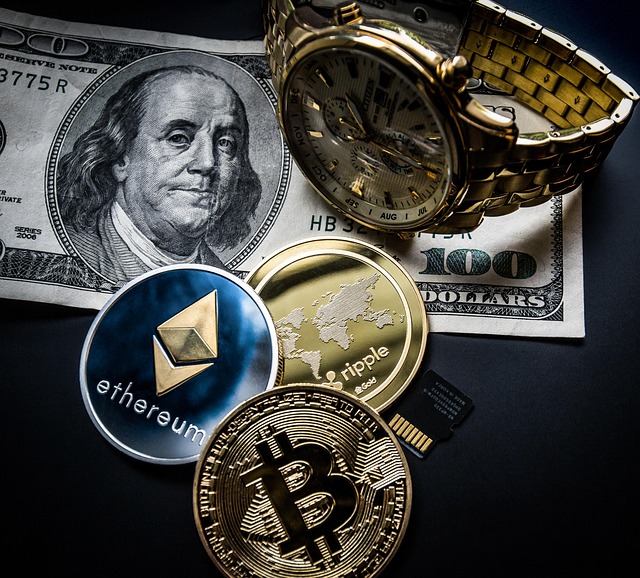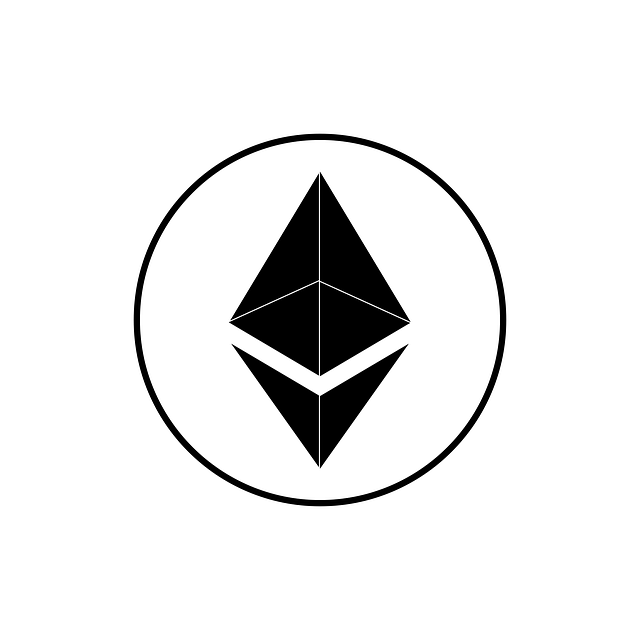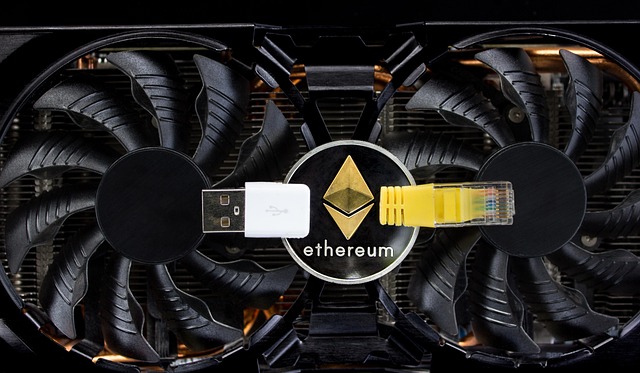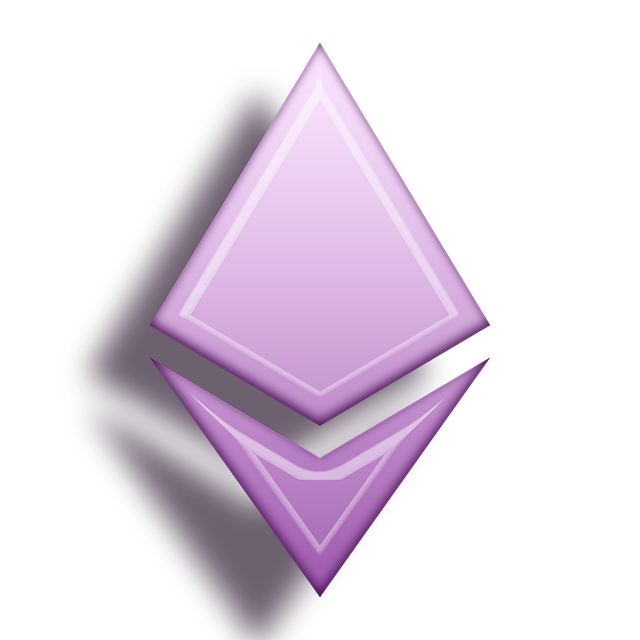Ethereum, a groundbreaking blockchain platform, has reshaped digital interactions with its innovative smart contracts and decentralized applications (dApps), enabling secure peer-to-peer transactions globally. Its native cryptocurrency, Ether (ETH), facilitates these exchanges and powers contract execution. As the metaverse emerges, Ethereum's robust infrastructure positions it as a leading candidate to shape the future internet. Through dApps, users can own and monetize virtual assets, participate in governance, and engage in secure peer-to-peer transactions within immersive digital spaces. Ethereum's support for non-fungible tokens (NFTs) has sparked new opportunities for digital ownership and economic participation in the metaverse, fostering community growth and innovation. While challenges like scalability and privacy exist, ongoing solutions like layer-2 scaling are addressing these issues, promising to redefine online spaces and drive a cryptocurrency-based economy in the next generation of internet interactions.
“Explore the convergence of Ethereum, the pioneering decentralized blockchain, with the metaverse, a nascent digital realm redefining interaction. This article delves into how Ethereum fosters a next-generation Internet by enabling immersive experiences, decentralized ownership, and innovative economies within the metaverse. We examine its pivotal role in shaping virtual landscapes, empowering users through smart contracts, and addressing challenges to unlock the full potential of this transformative technology, all centered around Ethereum’s core principles.”
- Understanding Ethereum: The Decentralized Blockchain Revolution
- Metaverse: A New Digital Frontier and Its Potential
- Ethereum's Role in Shaping the Metaverse Experience
- Smart Contracts and Virtual Economies: Powering the Metaverse
- Navigating Challenges and Future Prospects of Ethereum-Based Metaverse
Understanding Ethereum: The Decentralized Blockchain Revolution

Ethereum, a groundbreaking blockchain platform, has revolutionized the digital landscape by introducing smart contracts and decentralized applications (dApps). This innovative technology allows for peer-to-peer interactions without the need for intermediaries, marking a significant departure from traditional centralized systems. At its core, Ethereum enables developers to build and deploy dApps on a global, transparent, and secure network.
The network’s native cryptocurrency, Ether (ETH), serves as both a medium of exchange and fuel for executing smart contracts. This dual role is pivotal in facilitating seamless transactions and ensuring the efficiency of decentralized operations. As the metaverse gains traction, Ethereum’s robust infrastructure positions it at the forefront of shaping the next-generation internet, offering unparalleled opportunities for developers and users alike.
Metaverse: A New Digital Frontier and Its Potential

The metaverse, a term that has been making waves in recent years, represents a new digital frontier with immense potential. It envisions a unified virtual space where users from around the globe can interact, engage, and transact seamlessly, blurring the lines between physical and digital realities. With Ethereum at its core, this vision is becoming increasingly tangible.
Ethereum’s powerful blockchain technology provides the necessary infrastructure for building decentralized applications (dApps) within the metaverse. Its smart contract functionality enables secure and transparent interactions, allowing users to own and monetize their virtual assets, participate in governance, and engage in peer-to-peer transactions without intermediaries. This opens up a world of possibilities, from virtual real estate and digital fashion to immersive gaming experiences and decentralized social networks, all powered by the Ethereum ecosystem.
Ethereum's Role in Shaping the Metaverse Experience

Ethereum plays a pivotal role in shaping the metaverse experience, serving as a foundational blockchain technology that enables seamless interactions and transactions within virtual worlds. Its robust smart contract functionality allows for the creation of decentralized applications (dApps), which can power various aspects of the metaverse, from digital asset trading to immersive gaming experiences. The Ethereum network’s global reach and high transaction speeds ensure that users can interact with virtual environments in real-time, fostering a sense of presence and community.
Furthermore, Ethereum’s support for non-fungible tokens (NFTs) has opened up new frontiers in digital ownership and creativity. NFTs allow individuals to own unique digital assets, such as virtual land, art, and collectibles, within the metaverse. This innovation encourages user engagement and economic growth by enabling users to participate in a new digital economy, where their contributions and creations have genuine value and permanence.
Smart Contracts and Virtual Economies: Powering the Metaverse

Smart contracts, a cornerstone of Ethereum’s technology, are revolutionizing how digital interactions are structured in the metaverse. These self-executing contracts with predefined rules allow for seamless and transparent transactions, enabling users to engage in complex economic activities within virtual worlds. By eliminating intermediaries, smart contracts foster decentralized economies where users can own digital assets, participate in peer-to-peer trading, and build sustainable businesses.
The integration of Ethereum’s blockchain network into the metaverse creates a robust foundation for these virtual economies. It ensures secure and tamper-proof record-keeping, enabling users to have complete control over their assets and transactions. This level of decentralization empowers individuals to shape the economic landscape of digital spaces, fostering innovation and unlocking new opportunities for creators and entrepreneurs in the emerging metaverse ecosystem.
Navigating Challenges and Future Prospects of Ethereum-Based Metaverse

The path toward a fully-fledged Ethereum-based metaverse is fraught with challenges, from scalability issues to ensuring user privacy and data security in this immersive digital landscape. As the concept matures, developers and researchers are tackling these hurdles through innovative solutions like layer-2 scaling protocols and enhanced encryption methods. The potential for decentralized applications (dApps) within the metaverse to revolutionize various sectors, from gaming to real estate, is immense.
Looking ahead, the future of Ethereum in shaping this virtual reality holds promising possibilities. As the network continues to evolve, it could enable seamless interactions between digital assets, foster a vibrant economy powered by cryptocurrency, and redefine how we perceive and engage with online spaces. These prospects not only underscore the significance of Ethereum but also its potential to become a cornerstone of the next-generation internet.
As we peer into the future, it’s evident that Ethereum and the metaverse are pioneering a new era of digital interaction. By leveraging decentralized technology and smart contracts, Ethereum is reshaping online experiences, enabling vibrant virtual economies, and paving the way for immersive, user-owned digital landscapes. While challenges remain, the potential of Ethereum-based metaverses to revolutionize connectivity, creativity, and ownership is undeniable. This innovative blend of blockchain and virtual reality promises a future where the internet becomes truly interactive, inclusive, and decentralized.



